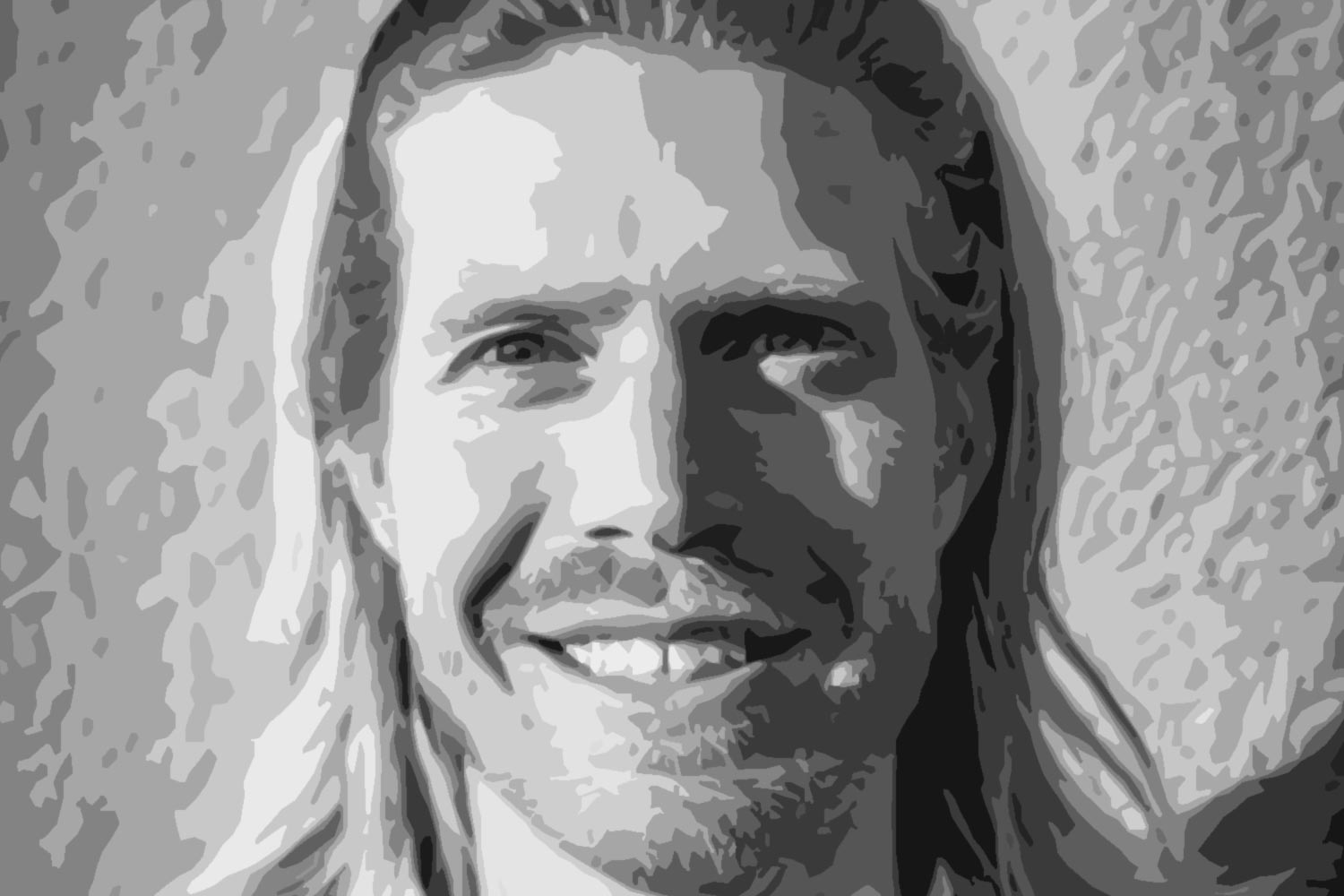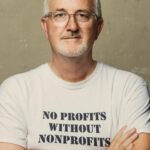Against the Current: Matt Jorgensen
Interview with social entrepreneur Matt Jorgensen. How to unlock the power of small, home-based entrepreneurs and their kitchens.

“I am obsessed with the work of collective liberation and healing, which starts with transforming myself.”
When most people think of solving a growing problem, they often think, “Well, let’s just make what we’re doing now—bigger.” Not Matt. Since he got into social justice work, he’s been reversing the flow by finding ways to unlock the power of small, home-based entrepreneurs and their kitchens. And while I think you’ll dig the work he’s done, I hope you’ll also admire his ideas about leadership, transition, and growth.
What’s your thing… not what you do but why you do what you do?
I am obsessed with the work of collective liberation and healing, which starts with transforming myself. I’m working constantly to better understand, accept, and come into deeper alignment with myself. What am I afraid of? Where do I feel limited and insufficient? Where can I value and embody the gifts I already have to give?
I believe all real transformation—whether it’s personal, cultural, or structural—works from the inside out.
So my social justice work emerges from this process of deepening in self-acceptance, and in turn learning to more fully show up for the world. I often repeat the words of Dr. Cornel West, who said, “Justice is what love looks like in public.”
OK, now tell us what you do.
For the past five years, I’ve been working to legalize the sale of home-cooked food in the United States. At its core this work is about recognizing and revaluing the role that home cooks, and other pillars of our communities, play in our lives.
When I began this work, it was as a cofounder of a social-enterprise startup called Josephine. We built a private club for selling home-cooked meals and worked with thousands of cooks in the Bay Area, Portland, and Seattle. Over the course of a few years, it became clear that we would need to change the law—and eventually we shut down the business to focus on our nonprofit movement, the COOK Alliance.
Our Manifesto (cookalliance.org/manifesto) lays out our core work and direction. Now that we’ve passed a first “template” law legalizing small-scale home restaurants in California, we’re looking to increasingly decentralize and “pass the torch” to leaders in impacted communities over the coming years.
What makes you want to scream most about the state of philanthropy? What gives you the most hope for our sector?
There’s something about trying to use oppressive systems to build evolutionary solutions that just feels flawed. Philanthropy and the private sector feel equally bought into our culture’s dominant mythology in my opinion. The logic of power/dominance, capitalism/growth, solving/winning. Either you’re profiteering (as a company), or you’re begging (as a nonprofit). In both cases, the goal is to “win,” which is mostly defined in quantitative terms.
I want solutions that aren’t binary, that can hold tension between earning money to be sustainable and scalable, without being/becoming about making money or growing.
I’m encouraged by how many folks seem to be realizing/rejecting this false binary. I recently started working with a group called Purpose that is all about breaking down the for/nonprofit binary with new “steward ownership” legal/funding forms.
If you could get the ear of a presidential candidate, what law or policy would you most urge them to enact, and how would it radically rock your world?
Anything that decouples “productive output” from our individual value/right to exist (and be cared for) on this planet is hugely exciting to me. This means policies like universal basic income, universal “family care” plan, mandatory paid sabbaticals, or increased time-off for all workers. I think the idea is universal: We all have some basic rights that shouldn’t be handed out paternalistically.
We all deserve safety and security for ourselves and our kids, and, with enough resources in a rich society, we also all deserve opportunities to slow down from “producing” for long enough to respond to our own deepest longings. This was the promise of the industrial revolution… and yet, we’re working harder than ever to generate more, more, more, which so often just benefits a select few.
With more universal policies that grant individuals security that is independent from capitalistic profit-maximization, I think a lot more people would spend time on labors of love like home cooking, caring for their families, creative projects, and personal/spiritual exploration. This is the world I want to live in, but it won’t happen until we stop extracting from our most vulnerable communities.
How much money would you need to truly run wild and what would it allow you to do?
I don’t really have an answer here, because I don’t really think it’s about money.
To truly “run wild” with the home cooking movement we’ll need to find ways to bring the most impacted communities into core leadership for the next phase of our work. If we are able to do this, and make these new, more diverse leaders heard, I truly believe our work will find the resourcing it needs.
That said, $1 million in the bank would fund a core team of three new Co-Directors for a couple years, and that’d be really nice.
I know you work with a team and avoid notions of sole leadership, but tell me about your views on leadership, and the way you come to consensus in your organization.
I’ve grown immensely on this topic over the past 5 years! Earlier in my career, I was far more bought into the myths of the “visionary entrepreneur/leader” than I’d like to admit. I’m incredibly grateful to many people I worked with over the years for teaching/learning with me and being patient with my shortfalls.
For me today, building consensus is all about making space for shared “truth” and “whole person” relationships to emerge. We can’t all agree all the time. Period. And I use truth in quotes because truth isn’t fixed—it’s just shorthand for making sense of our constantly changing reality until we have new/better information.
But if each individual is given the opportunity to find/speak their current truth, and a group has the patience/self-assuredness to really hear that truth and be in dialogue around it, then a team will find consensus (even if it means, in some cases, people parting ways to pursue their own “truth”).
A “leader” is only a leader if they recognize that their role is in shepherding emergent truth out of group process, rather than imposing their own truth upon it. And part of leadership is also helping groups reckon with the changing nature of their “truth” over time, to not panic/splinter when new information presents itself.
Talk about your best elder ally and how they inspired you through their actions.
My mom died of cancer when I was in my early 20s, but she’s with me every day. She was everyone’s therapist, shoulder to cry on, and many people’s biggest supporter. I feel the fibers of her generosity, tenderness, and genuine curiosity running through my life and being. I continue to learn huge (sometimes unexpected) lessons from her constantly.
The organizations in which you’ve been involved are often social enterprises. What is it about that model that attracts you?
As I mentioned early on in this interview, I’m all about holding tension and I believe in solutions that aren’t binary. Social enterprise done right is a middle way between self-sustaining/replicating financial models and purpose-driven decision-making.
Tell us about another young leader everyone should know.
I really look up to my friend Katie Valenzuela immensely. Katie is an incoming Sacramento Councilmember, but before she ran for elected office, we had the opportunity to work together in the early days of the home cooking legalization movement. Since then, she has continued to lead in so many inspiring ways on climate change work, on racial justice, and on many other issues—always in a deeply community-centric way. She recently helped launch “People’s Budget Sacramento” and is going to be a kickass Councilmember.
You are part of a new generation of nonprofit leaders who seem bent on liberating people from charity. What would be the ideal outcome of your work in 20 years?
In 20 years, I hope there’s a home cook on every block, sharing love with their neighbors and getting paid. I hope alongside that flourishing of home cooking that millions of us (re)recognize the value of non-commercial, “less professional” work and take one step closer to inhabiting the joy of more purposeful, intentional work in our own lives.
This type of individual-led transformation is what I have the most faith in—and I will continue to believe in this despite the chaos in our macroeconomic/political systems. If individuals evolve, the macro systems will have to evolve to keep up.
You might also like:
- Blue Avocado: What it Takes to Run a Nonprofit
- Against the Current: Rudy Espinoza’s Request to President-elect Biden
- Against the Current: Mitch Gruber
- Against the Current: Regina Anderson
- Against the Current: Nihal Satyadev
You made it to the end! Please share this article!
Let’s help other nonprofit leaders succeed! Consider sharing this article with your friends and colleagues via email or social media.
About the Author
Articles on Blue Avocado do not provide legal representation or legal advice and should not be used as a substitute for advice or legal counsel. Blue Avocado provides space for the nonprofit sector to express new ideas. The opinions and views expressed in this article are solely those of the authors. They do not purport to reflect or imply the opinions or views of Blue Avocado, its publisher, or affiliated organizations. Blue Avocado, its publisher, and affiliated organizations are not liable for website visitors’ use of the content on Blue Avocado nor for visitors’ decisions about using the Blue Avocado website.








